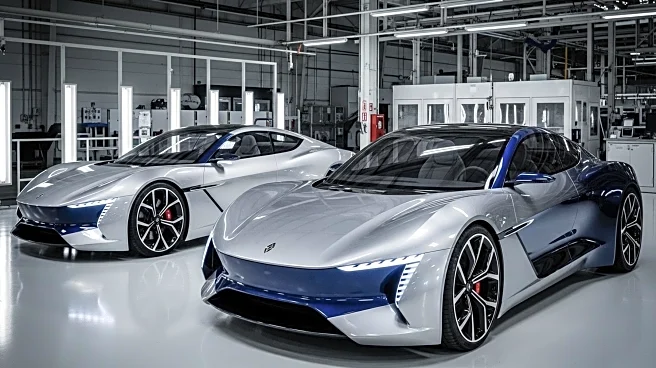What is the story about?
What's Happening?
Toyota, the world's largest automaker, has announced plans to manufacture two new electric vehicles (EVs) at its plant in Georgetown, Kentucky. These models, based on the popular RAV4 and Land Cruiser, will feature three rows of seating. This decision is part of Toyota's strategy to shift more production to the United States, aiming to avoid tariff-related cost increases imposed by President Trump. The 25 percent tariff on foreign-made cars and parts has prompted several automakers, including GM, Ford, Volkswagen, and Hyundai, to reconsider their production strategies. Toyota's move aligns with efforts to create more American jobs and reduce manufacturing costs.
Why It's Important?
The shift in production to the U.S. is significant for the automotive industry, as it reflects the broader impact of tariff policies on manufacturing decisions. By increasing domestic production, Toyota and other automakers aim to mitigate the financial burden of tariffs, which have led to price hikes across the industry. This strategy could potentially create more jobs in the U.S. and strengthen the local economy. However, the increased production costs may lead to higher vehicle prices, affecting consumer affordability and potentially driving more buyers towards used cars.
What's Next?
Toyota's decision to manufacture new models in Kentucky is expected to influence other automakers' strategies in response to tariff pressures. As the industry adapts, further investments in U.S. manufacturing facilities may occur, potentially leading to job creation and economic growth. However, the ongoing price increases could continue to challenge consumer affordability, prompting automakers to explore cost-reduction strategies or alternative production locations.
















